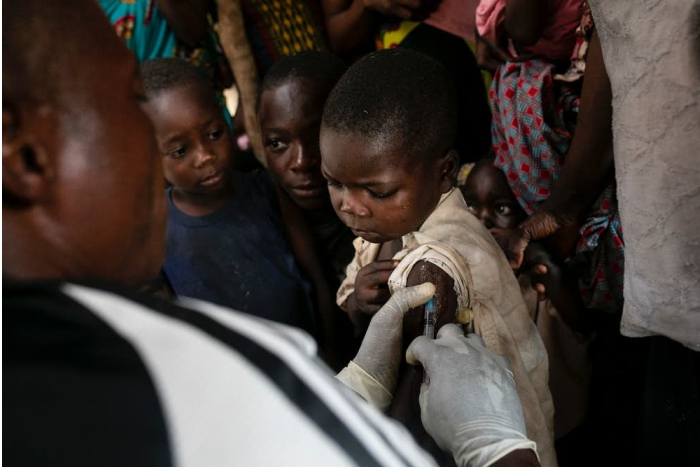
DR Congo declares end to 25-month measles outbreak

The measles outbreak in the Democratic Republic of Congo was declared over on Tuesday by the country’s Minister of Health Eteni Longondo.
The announcement is welcome news to the DR Congo’s health system which has been weakened by years of conflict and neglect and was struggling to deal with Ebola and COVID-19, in addition to the measles outbreak.
The latest outbreak, which had its first cases reported in June 2018, killed more than 7,000 children under the age of five, according to Longondo.
Massive immunization campaigns targeting millions of children and infants countered the spread of the outbreak.
“For the past month, we are able to say that this epidemic has been eliminated from across our territory,” Longondo said.
“We can say that measles no longer exists.”
Longondo added that regular vaccinations will continue to prevent a potential second wave of the outbreak.
Efforts to contain the outbreak, termed by the World Health Organisation as “world’s worst measles epidemic”, were hampered by a lack of funding, low vaccination coverage of vulnerable communities, malnutrition, insufficient public health systems and outbreaks of other diseases with epidemic potential.
Measles is a highly contagious, serious disease caused by a virus, normally passed through direct contact and through the air. The most serious complications of measles include blindness, encephalitis (an infection that causes brain swelling), severe diarrhoea and related dehydration, ear infections, or severe respiratory infections.






